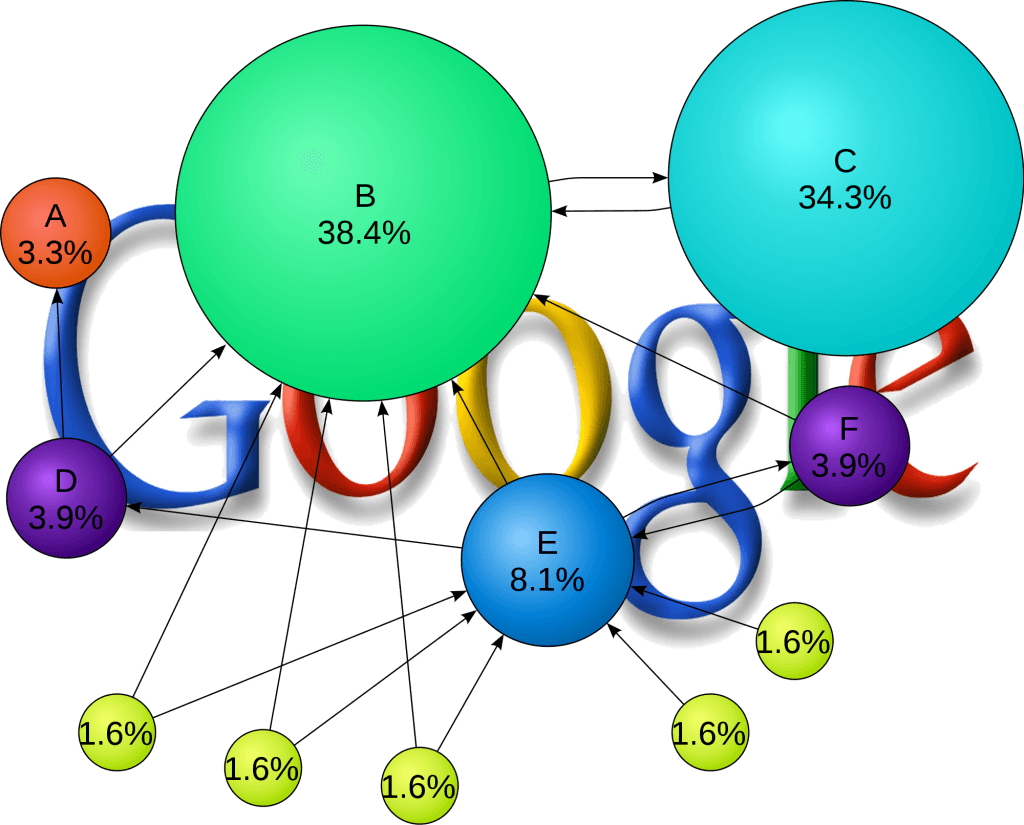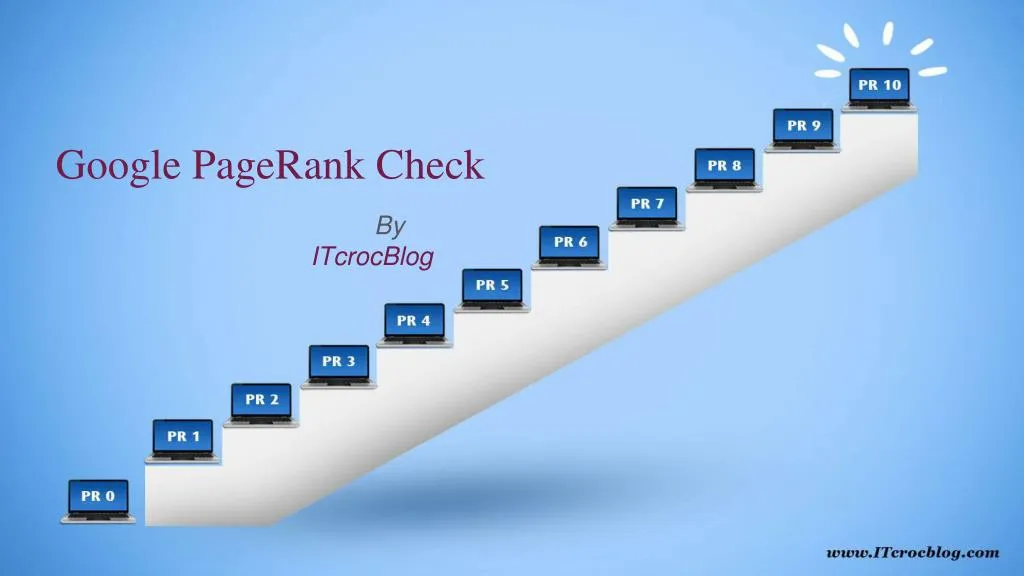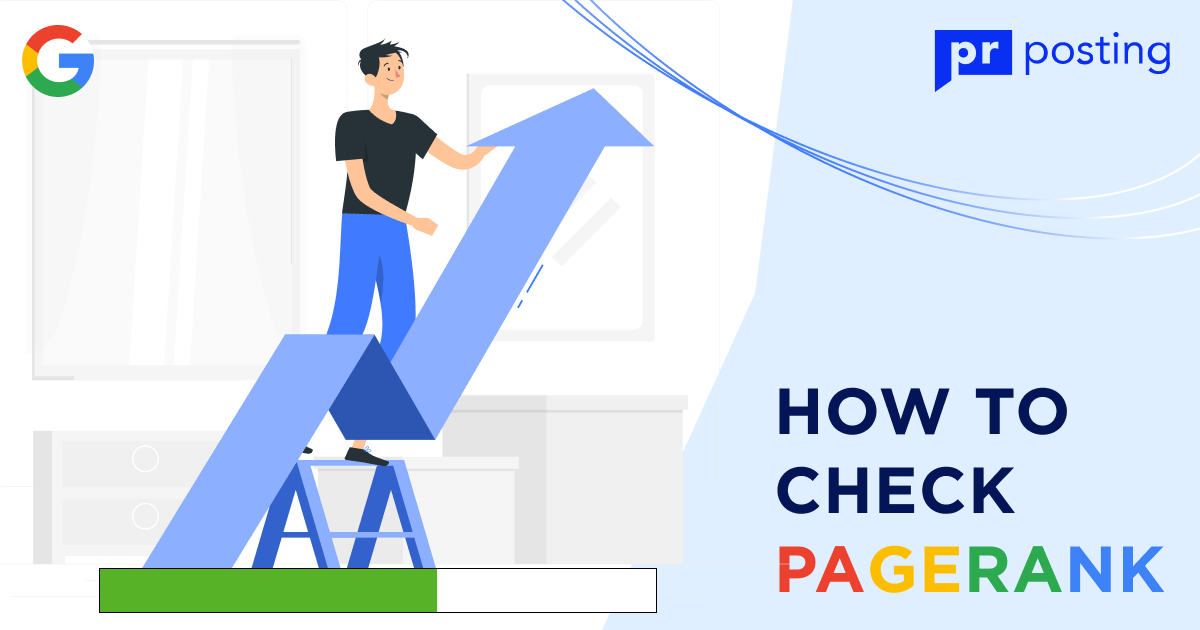The Ultimate Guide To Checking Google PageRank: Step-by-Step Instructions
What is Google PageRank?
Google PageRank is page ranking system developed by Google that speculate the importance of a webpage. It is calculated by the number of links to that webpage from other webpages, as well as the quality of those links. Put simply, it is an algorithmic measure that estimates the significance or reputation of specific pages on the internet by using backlinks to estimate their relative value.
The more high-quality links a webpage has, the higher its PageRank will be. This is because Google considers links from reputable websites, authoritative webpages, and trustworthy sources to be more valuable than links from low-quality websites and less reliable sources. As a result, webpages with high PageRanks are often ranked higher in Google's search results, making them more visible to users.
- Topsecret Military Locations In Sakhalin A Comprehensive Guide
- Bellebrooksxo The Ultimate Fashion And Lifestyle Destination
PageRank was developed by Larry Page and Sergey Brin, the founders of Google, in 1996. It was originally used as a way to measure the importance of webpages for the purpose of ranking them in search results. However, PageRank has since evolved and is now used for a variety of purposes, including identifying influential websites, detecting link spam, and combating webspam.
PageRank is an important metric for website owners and SEO professionals because it can help them to understand the visibility and authority of their webpages. By understanding their PageRank, website owners can take steps to improve their link profiles and increase their search engine rankings.
Google PageRank
Google PageRank is a metric that measures the importance of a webpage based on the number and quality of links to that page. It has been a key part of Google's search ranking algorithm since 1996.
- Adam Sandlers Trump Impression A Hilarious Commentary
- Discover Captivating Hollywood Movies For Vegans
- Links: The number of links to a webpage is one of the most important factors in determining its PageRank.
- Link quality: The quality of the links to a webpage is also important. Links from high-quality websites are more valuable than links from low-quality websites.
- Anchor text: The anchor text of a link is the visible text that is clicked on. Anchor text can help to indicate the topic of the linked webpage, and it can also be used to influence the PageRank of the linked webpage.
- PageRank sculpting: PageRank sculpting is a technique that can be used to control the flow of PageRank through a website. This can be done by using nofollow links and other methods.
- Toolbar PageRank: The Toolbar PageRank is a public metric that was displayed in the Google Toolbar. It was discontinued in 2016, but it is still used by some website owners and SEO professionals to track the PageRank of their webpages.
- API: Google provides an API that allows developers to access PageRank data. This data can be used to develop tools and applications that can help website owners to improve their PageRank.
- Patent: The PageRank algorithm is patented by Google. This patent has been the subject of much litigation, but it remains an important part of Google's search ranking algorithm.
PageRank is a complex and ever-changing algorithm. However, the key aspects of PageRank remain the same. By understanding these key aspects, website owners can take steps to improve their PageRank and increase their visibility in Google's search results.
1. Links
The number of links to a webpage is one of the most important factors in determining its PageRank. This is because Google considers links to be a sign of trust and authority. When one website links to another, it is essentially saying that the linked website is a valuable resource. The more links a website has, the more valuable it is considered to be by Google, and the higher its PageRank will be.
There are a few things to keep in mind when it comes to links and PageRank. First, not all links are created equal. Links from high-quality websites are more valuable than links from low-quality websites. Second, the anchor text of a link can also affect its value. Anchor text is the visible text that is clicked on to follow a link. If the anchor text is relevant to the topic of the linked webpage, it can help to improve the PageRank of that webpage.
Building high-quality links is an important part of any SEO strategy. By acquiring links from reputable websites, you can improve your PageRank and increase your visibility in Google's search results.
Here are a few tips for building high-quality links:
- Create high-quality content that is informative and engaging.
- Submit your content to directories and article directories.
- Guest post on other websites.
- Participate in online forums and discussions.
- Build relationships with other website owners.
2. Link quality
The quality of the links to a webpage is an important factor in determining its PageRank. This is because Google considers links from high-quality websites to be more valuable than links from low-quality websites. High-quality websites are typically those that are well-established, have a good reputation, and provide valuable content. Links from these types of websites are more likely to be trusted by Google and will therefore have a greater impact on a webpage's PageRank.
There are a number of factors that can affect the quality of a link, including:
- The authority of the linking website: Links from websites with high PageRanks are more valuable than links from websites with low PageRanks.
- The relevance of the linking website: Links from websites that are relevant to the topic of the linked webpage are more valuable than links from websites that are not relevant.
- The anchor text of the link: The anchor text of a link is the visible text that is clicked on to follow the link. Anchor text that is relevant to the topic of the linked webpage can help to improve the PageRank of that webpage.
Building high-quality links is an important part of any SEO strategy. By acquiring links from reputable websites, you can improve your PageRank and increase your visibility in Google's search results.
Here are a few tips for building high-quality links:
- Create high-quality content that is informative and engaging.
- Submit your content to directories and article directories.
- Guest post on other websites.
- Participate in online forums and discussions.
- Build relationships with other website owners.
By following these tips, you can build high-quality links and improve your PageRank. This will help you to increase your visibility in Google's search results and attract more visitors to your website.
3. Anchor text
Anchor text is an important factor in Google's PageRank algorithm. This is because anchor text can help to indicate the topic of the linked webpage, and it can also be used to pass PageRank from one webpage to another. As a result, it is important to choose anchor text carefully when linking to other webpages.
When choosing anchor text, it is important to keep the following in mind:
- The anchor text should be relevant to the topic of the linked webpage.
- The anchor text should be concise and to the point.
- The anchor text should not be overstuffed with keywords.
By following these tips, you can choose anchor text that will help to improve your PageRank and increase your visibility in Google's search results.
Here are some examples of good anchor text:
- Example website
- Example blog
- Contact us
Here are some examples of bad anchor text:
- Click here
- Visit our website
- Learn more
By using good anchor text, you can help to improve your PageRank and increase your visibility in Google's search results.
4. PageRank sculpting
PageRank sculpting is a technique that can be used to control the flow of PageRank through a website. This can be done by using nofollow links and other methods. Nofollow links are links that tell Google not to pass PageRank to the linked webpage. This can be useful for preventing PageRank from flowing to low-quality webpages or webpages that you do not want to rank well in Google's search results.
PageRank sculpting can be a useful tool for website owners who want to improve their website's PageRank and visibility in Google's search results. However, it is important to use PageRank sculpting carefully. If you use PageRank sculpting too aggressively, you could end up harming your website's PageRank and visibility in Google's search results.
Here are some examples of how PageRank sculpting can be used: To prevent PageRank from flowing to low-quality webpages: You can use nofollow links to prevent PageRank from flowing to low-quality webpages, such as spammy websites or websites that are not relevant to your website's topic.To control the flow of PageRank within your website: You can use nofollow links to control the flow of PageRank within your website. For example, you could use nofollow links to prevent PageRank from flowing from your homepage to your contact page. To improve your website's PageRank: You can use PageRank sculpting to improve your website's PageRank by linking to high-quality websites and using nofollow links to prevent PageRank from flowing to low-quality websites.PageRank sculpting is a powerful tool that can be used to improve your website's PageRank and visibility in Google's search results. However, it is important to use PageRank sculpting carefully. If you use PageRank sculpting too aggressively, you could end up harming your website's PageRank and visibility in Google's search results.5. Toolbar PageRank
The Toolbar PageRank was a public metric that was displayed in the Google Toolbar. It was discontinued in 2016, but it is still used by some website owners and SEO professionals to track the PageRank of their webpages. The Toolbar PageRank was a measure of the importance of a webpage based on the number and quality of links to that page. It was calculated on a scale of 0 to 10, with 10 being the highest possible ranking. The Toolbar PageRank was a useful tool for website owners and SEO professionals to track the progress of their websites and to identify opportunities for improvement.
While the Toolbar PageRank is no longer updated, it is still a valuable tool for website owners and SEO professionals. By understanding the factors that affect PageRank, website owners can take steps to improve their PageRank and increase their visibility in Google's search results.
Here are some of the key insights that can be gained from understanding the connection between Toolbar PageRank and "google check pagerank":
- Toolbar PageRank is a measure of the importance of a webpage based on the number and quality of links to that page.
- PageRank is a key factor in determining the ranking of a webpage in Google's search results.
- By understanding the factors that affect PageRank, website owners can take steps to improve their PageRank and increase their visibility in Google's search results.
6. API
The Google PageRank API is a powerful tool that can be used to improve your website's PageRank and visibility in Google's search results. By accessing PageRank data, developers can create tools and applications that can help website owners to:
- Track the PageRank of their webpages over time.
- Identify opportunities to improve their PageRank.
- Develop estrategias to increase their visibility in Google's search results.
There are a number of different ways that the Google PageRank API can be used to improve your website's PageRank. One way is to use the API to track the PageRank of your webpages over time. This can help you to identify trends in your PageRank and to make adjustments to your website accordingly. Another way to use the API is to identify opportunities to improve your PageRank. By analyzing the PageRank of your webpages, you can identify which pages are performing well and which pages need improvement. You can then make changes to your website to improve the PageRank of these pages.
The Google PageRank API is a valuable tool for website owners who want to improve their website's PageRank and visibility in Google's search results. By using the API, developers can create tools and applications that can help website owners to track their PageRank, identify opportunities for improvement, and develop strategies to increase their visibility in Google's search results.
7. Patent
Google's PageRank algorithm is one of the most important factors in determining the ranking of a webpage in Google's search results. The PageRank algorithm is based on the idea that the more links a webpage has from other high-quality webpages, the more important that webpage is. This is because links are seen as a sign of trust and authority. As a result, webpages with high PageRanks are more likely to appear at the top of Google's search results.
- The PageRank patent: Google's PageRank algorithm is protected by a patent. This patent has been the subject of much litigation, but it remains an important part of Google's search ranking algorithm.
- The importance of PageRank: PageRank is one of the most important factors in determining the ranking of a webpage in Google's search results. Webpages with high PageRanks are more likely to appear at the top of Google's search results.
- How to improve your PageRank: There are a number of things you can do to improve your PageRank, including building high-quality links to your website, creating high-quality content, and optimizing your website for search engines.
If you want to improve your website's ranking in Google's search results, it is important to understand how PageRank works. By understanding the factors that affect PageRank, you can take steps to improve your PageRank and increase your website's visibility in Google's search results.
Frequently Asked Questions about Google PageRank
Google PageRank is a metric that measures the importance of a webpage based on the number and quality of links to that page. Here are some frequently asked questions about Google PageRank:
Question 1:What is the PageRank algorithm?The PageRank algorithm is a mathematical formula that calculates the importance of a webpage based on the number and quality of links to that page. The more links a webpage has from high-quality websites, the higher its PageRank will be.
Question 2:How is PageRank used?PageRank is used by Google to determine the ranking of webpages in its search results. Webpages with high PageRanks are more likely to appear at the top of Google's search results.
Question 3:How can I improve my PageRank?There are a number of things you can do to improve your PageRank, including:
- Building high-quality links to your website: The more links you have from high-quality websites, the higher your PageRank will be.
- Creating high-quality content: Google prefers websites with high-quality content. By creating high-quality content, you can attract links from other websites and improve your PageRank.
- Optimizing your website for search engines: By optimizing your website for search engines, you can make it more likely that people will find your website and link to it. This will help to improve your PageRank.
Yes, PageRank is still an important factor in Google's search ranking algorithm. However, it is not the only factor. Google also considers other factors, such as the quality of your content, the user experience of your website, and the relevance of your website to the user's search query.
Question 5:How can I track my PageRank?There are a number of tools that you can use to track your PageRank. One popular tool is the Google Search Console. The Google Search Console is a free tool that allows you to track your website's traffic and performance in Google's search results. You can use the Google Search Console to track your PageRank and identify opportunities to improve your website's ranking.
By understanding the answers to these frequently asked questions, you can improve your website's PageRank and increase your visibility in Google's search results.
Next:How to Improve Your PageRank
Conclusion
Google PageRank is a metric that measures the importance of a webpage based on the number and quality of links to that page. It is one of the most important factors in determining the ranking of a webpage in Google's search results.
By understanding the factors that affect PageRank, website owners can take steps to improve their PageRank and increase their visibility in Google's search results. This can lead to increased traffic, leads, and sales.
If you want to improve your website's PageRank, there are a number of things you can do, including:
- Building high-quality links to your website
- Creating high-quality content
- Optimizing your website for search engines
By following these tips, you can improve your PageRank and increase your website's visibility in Google's search results.



Detail Author:
- Name : Dr. Brenda Russel
- Username : jordan05
- Email : jbarton@hotmail.com
- Birthdate : 2000-04-04
- Address : 60712 Casper Lights Apt. 963 West Ellieside, NE 97084
- Phone : 954-340-0056
- Company : Jacobi-D'Amore
- Job : Irradiated-Fuel Handler
- Bio : Aut incidunt aspernatur atque alias ex numquam. Quidem commodi aperiam nemo ut harum. Voluptatum ut quis est et quis ratione. Nulla aliquam molestiae nisi.
Socials
linkedin:
- url : https://linkedin.com/in/farrell2015
- username : farrell2015
- bio : Praesentium velit nisi laborum labore labore.
- followers : 3807
- following : 2779
twitter:
- url : https://twitter.com/amelie_farrell
- username : amelie_farrell
- bio : Tenetur voluptatum accusantium ipsa quo voluptates. Saepe atque illum sit minima ratione delectus voluptatibus. Facere deleniti rerum quasi omnis.
- followers : 4161
- following : 699